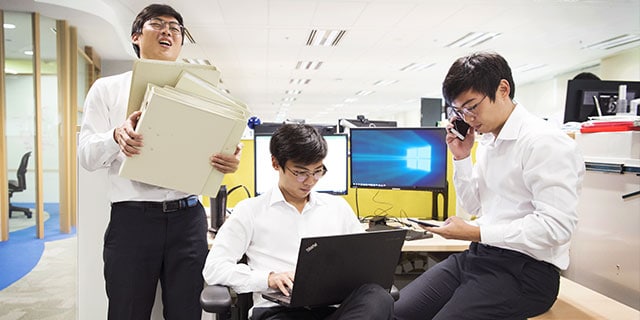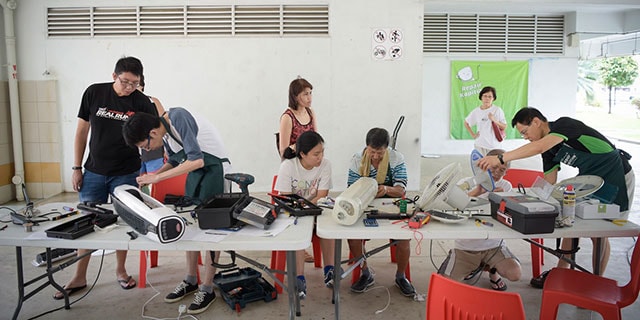3 Corporate Philanthropy Stories That Actually Worked Wonders
3 Corporate Philanthropy Stories That Actually Worked Wonders
A little thought and ingenuity goes a long way in making sure that corporations give back to the community in smarter, more sustainable ways
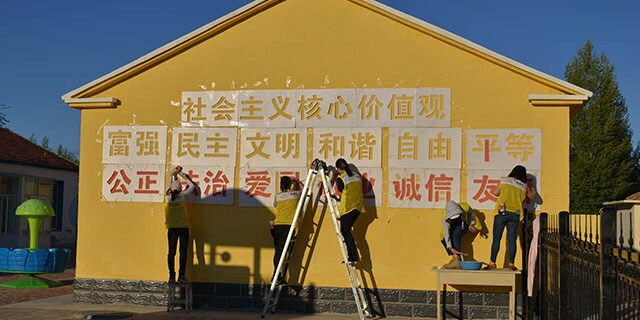
Supported by CapitaLand’s philanthropic arm, the CapitaLand Hope Foundation (CHF) brings staff volunteers to CapitaLand Xingfuzhilu Hope School in Chifeng, Inner Mongolia, to help improve the lives of underprivileged children. Photo credit: CapitaLand
Did you know that rice and sugar could expire?
Neither did Denise Phua, President of the Autism Resource Centre (Singapore). That is, until she had to deal with an overwhelming amount of food donations in the form of rice and sugar. Suddenly, from having too little, she had too much.
As a panelist at last week’s Temasek Trust Conversation on Corporate Giving (TTCCG), Ms Phua highlighted an issue with corporate giving today: the need for more efficient distribution of resources beyond mere good intention.
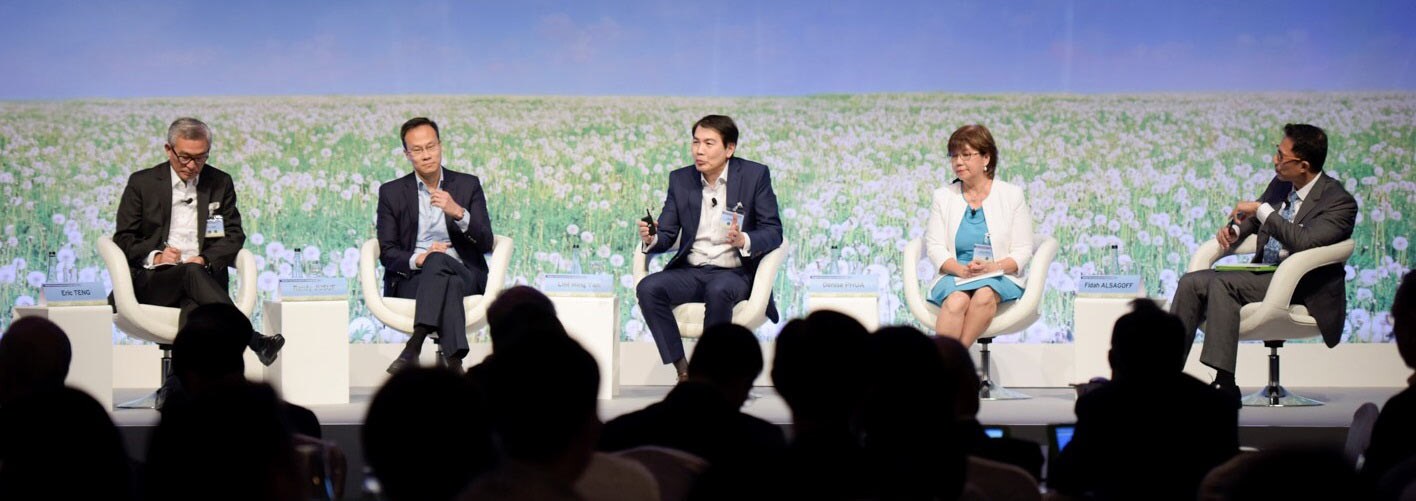
Panel discussion at Temasek Trust Conversation on Corporate Giving (TTCCG).
Sustained, Purposeful Giving
There isn’t a shortage of charity to go around in the world.
When a deadly 7.1 earthquake rocked Mexico on 19 September 2017, Red Cross Mexico stepped in to solicit food, tools and medical supplies. Donations, from individuals and corporations alike, poured in.
While it addressed the immediate concerns of the victims, the need remains for consistent, sustainable aid for years ahead.
How can corporations be smarter about how they give and utilise resources in the long haul? Here, we highlight a few initiatives shared during the conference that made long-lasting impact in the community.
1. Better Toilets, Better Tomorrow
More than 41 million people in urban India continue to practice open defecation due to a shortage of clean, working toilets. When you have to share the space with vermin every time you have to use the loo, no wonder people sometimes prefer the nearest bush.
To solve this, the Indian government set out to construct 2.5 million household and 100,000 community toilets by March 2016 — and this is where multinational personal care corporation Kimberly-Clark stepped in to do some good.
A Kimberly-Clark and Water for People initiative to provide safe sanitation for people world-wide.
The extra mile: The Toilets Change Lives initiative was set up to do just that. The company committed US$35.8 million in products and donations, all in the name of better toilets for the people. However, giving money was just a start.
Mr Randy Jusuf, managing director of the company’s consumer business in ASEAN and Hong Kong, elaborated during the TTCCG event, “We wanted to focus more on where we can have the most impact. So instead of building new toilets, we decided to fix existing ones.”
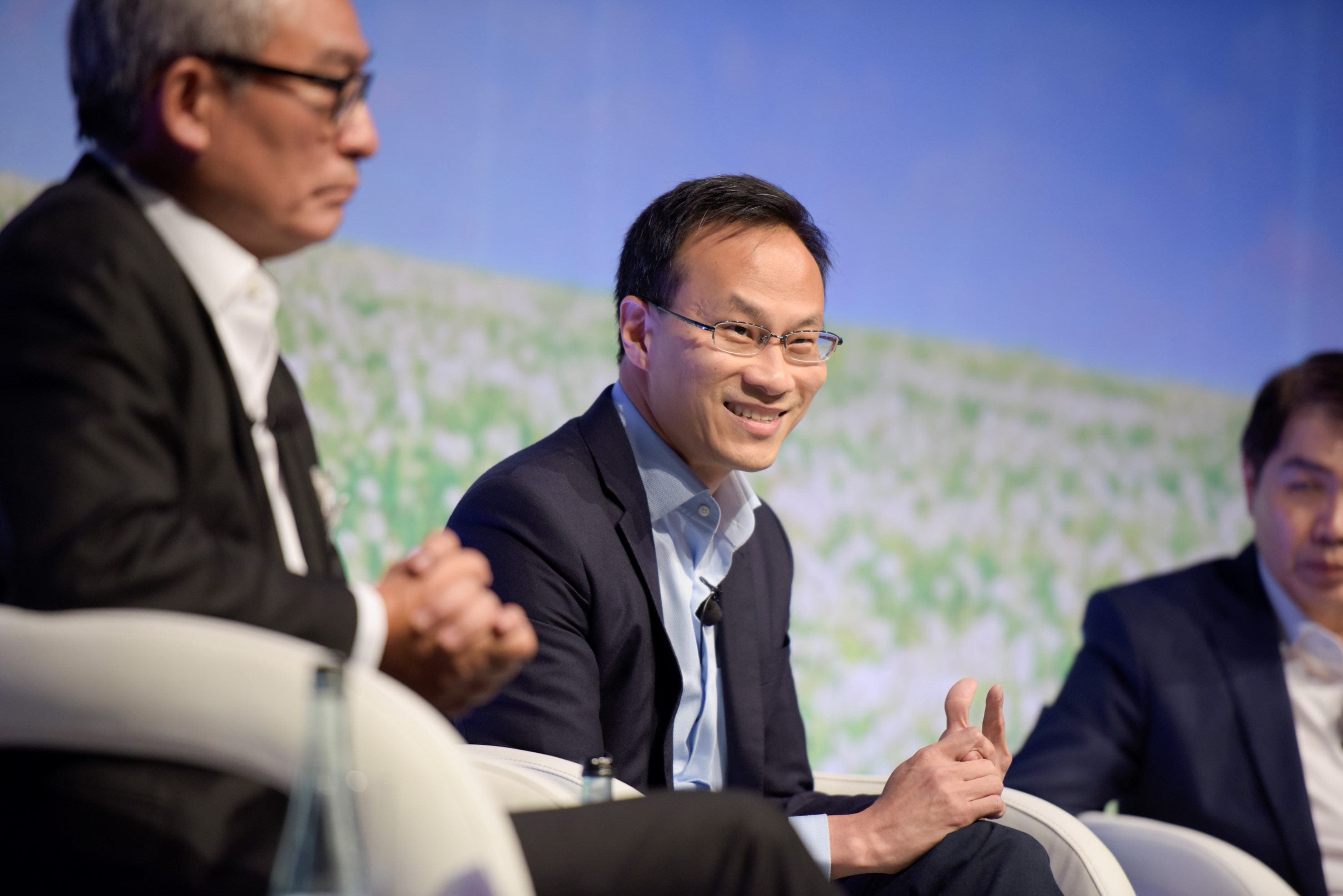
Mr Randy Jusuf, managing director of Kimberly-Clark (ASEAN and Hong Kong)
Toilets break or get dirty over time, and the good folks at Kimberly-Clark would not allow that. So they partnered with NGOs and charities to maintain these toilets.
It’s more long term, and it’s more sustainable,”
Jusuf explained. “It also allows us to stay close to
the core of our business.
2. Education for the Underprivileged
We read about corporations building science and computer labs in rural provinces in third-world countries — but what if they do not have electricity or Internet connection in the first place? What if there are no qualified teachers within a 500-kilometre radius?
The extra mile: In 2005, CapitaLand Hope Foundation was set up to help underprivileged children. “Here is a school [in Muchuan county of Sichuan], which we helped to build right after the 2008 Sichuan Earthquake,” said Mr Lim Ming Yan, President and Group CEO of CapitaLand Limited.
The CapitaLand Muchuan Green Hope School is a replacement for the school that was destroyed by the 2008 Sichuan earthquake in China.
The amount we put in was many times that of a normal school. But it paid off because it became a focal primary school in the region.
A school is but a collection of bricks without the right education. This particular primary school in Muchuan county, on the other hand, attracted better quality teachers.
1.jpg)
CapitaLand staff volunteers giving out food to the students of CapitaLand Xingfuzhilu Hope School. Photo credit: CapitaLand
And because CapitaLand has an existing culture of volunteerism, staff would return to these schools for assistance. So it is not just about building schools and letting locals run it, but putting in place long-term plans for these schools to grow alongside the students.
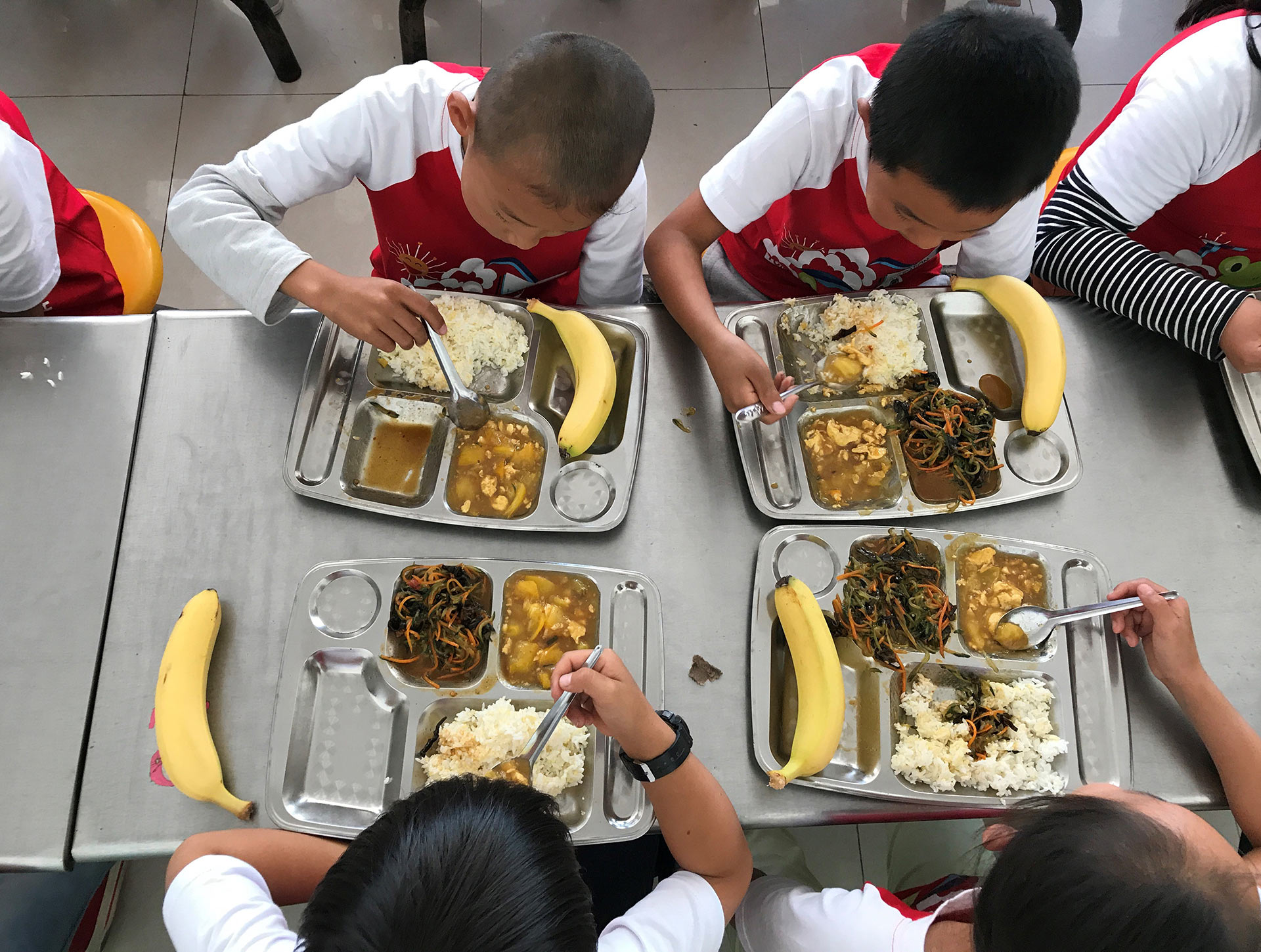
Students of CapitaLand Xingfuzhilu Hope School having their meals. Photo credit: CapitaLand
3. Food for Good — And Good Food, Too
There is a misconception that people with special needs don’t fit into a typical workplace and are thus heavily reliant on their family members.
“In the past, people who were not economically viable were often left behind,” Phua explained. “However, many [autistic children] are very sincere in wanting to learn and help their families.”
That was the beginning of the Noodles for Good initiative, a partnership between Phua’s Autism Resource Centre, Central Singapore Community Development Council (CDC) and Si Chuan Dou Hua restaurant.
Noodles for Good aims to provide special needs families with good quality food and beverage micro-business opportunities.
One of the first beneficiaries was Tan Chun Seng, an 18-year-old autistic boy that Phua got to know through her work with Autism Resource Centre in Singapore.
As part of the initiative, Chun Seng went through a two-month on-the-job training with the restaurant’s chefs, learning basic culinary skills — from making handmade noodles to wrapping dumplings
The extra mile: With the skills he learnt, Chun Seng went on to run a mobile food kiosk that sells handmade noodles and dumplings at Pathlight School, which helped him and his mother earn about S$2,000 monthly. What makes Ms Phua especially proud of the initiative is the fact that Chun Seng, armed with new skills he learnt, was able to carve out a life of his own and be more independent than ever before.
The Temasek Trust Conversation on Corporate Giving was held on 19 September. The event brings together business leaders and social changemakers to discuss and exchange about volunteerism and philanthropy.
